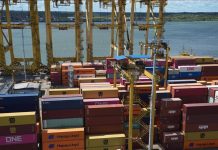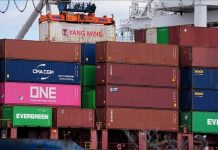THE government has said it is taking measures to tackle non tariff barriers for Tanzanian businesses at border posts, in response to the recent complaints aired by local traders.
The Deputy Minister for Trade and Industries, Eng. Stella Manyanya, told the ‘africa-press’ on Thursday that local traders were facing difficulties in shipping goods to neighbouring countries due to some unnecessary bureaucracies at borders.
Eng Manyanya noted that Tanzania has ratified various protocols that require each member country to remove bureaucratic non-tariff barriers to trade.
The Deputy Ministersaid apart from such agreements, still traders were facing challenges in transporting goods outside the country.
“As we speak, a trader transporting 30 tons of maize flour to the DRC has beestranded for days at Zambia’s Nakonde entry border post until the Zambian Minister for Agriculture signs the permit,” she said.
She said the consignment could not be allowed to cross the border, though it was not meant for Zambia, but the Democratic Republic of Congo (DRC).
The deputy minister was concerned that was happening despite the fact that the government has signed trade pacts with East African Community (EAC) as well as the SouthernAfrican Development Community (SADC) member states and that those agreements call for removal of non-tariff barriers so as toallow smooth business flow between nations.
“Non-tariff barriers are still hampering smooth movements of goods from borders leading to huge economic setbacks,” she said.
“Some of our traders who export cattle to neighbouring countries are forced to hire vehicles from those countries with authorities there restricting Tanzanian trucks from entering their territories,” she noted.
She added that some countries have been using their geographical advantage to obstruct movement of goods, often imposing ‘red tape’ or trade rules that unjustifiably restrict the flow of goods and services.
In an effort to remove these kinds of trade barriers for Tanzanian businesses in foreign markets, the government has held talks with their counterparts across the two blocs, noted Eng Manyanya.
She said the government of Tanzania believes in cooperation and free movement of people and trade, insisting that NTBs affects trade flows and is unhealthy to the country and regional economic growth.
According to the deputy minister, the government was applying both short and longterm measures in addressing those challenges and encouraged traders to continue devising strategies that would boost their businesses.
For the consignments meant for DRC, the government is planning to build ships to connect directly through Lake Tanganyika using Kasanga, Kabwe and other ports, Eng Manyanya said.
“The government is doing everything in its capacity to ensure traders are doing business without facing problems, we are engaged in negotiations with neighouring countries to ensure all challenges related to non-tariff barriers are resolved,” she underscored.
Non-tariff barriers can appear as policies that restrict imports and may be contrary to the rules of international trade.
Such policies can include animal and plant health requirements that are not based on science, nontransparent or inconsistently applied product or packaging standards, or competition and government procurement policies that are in breach of trade agreements.







